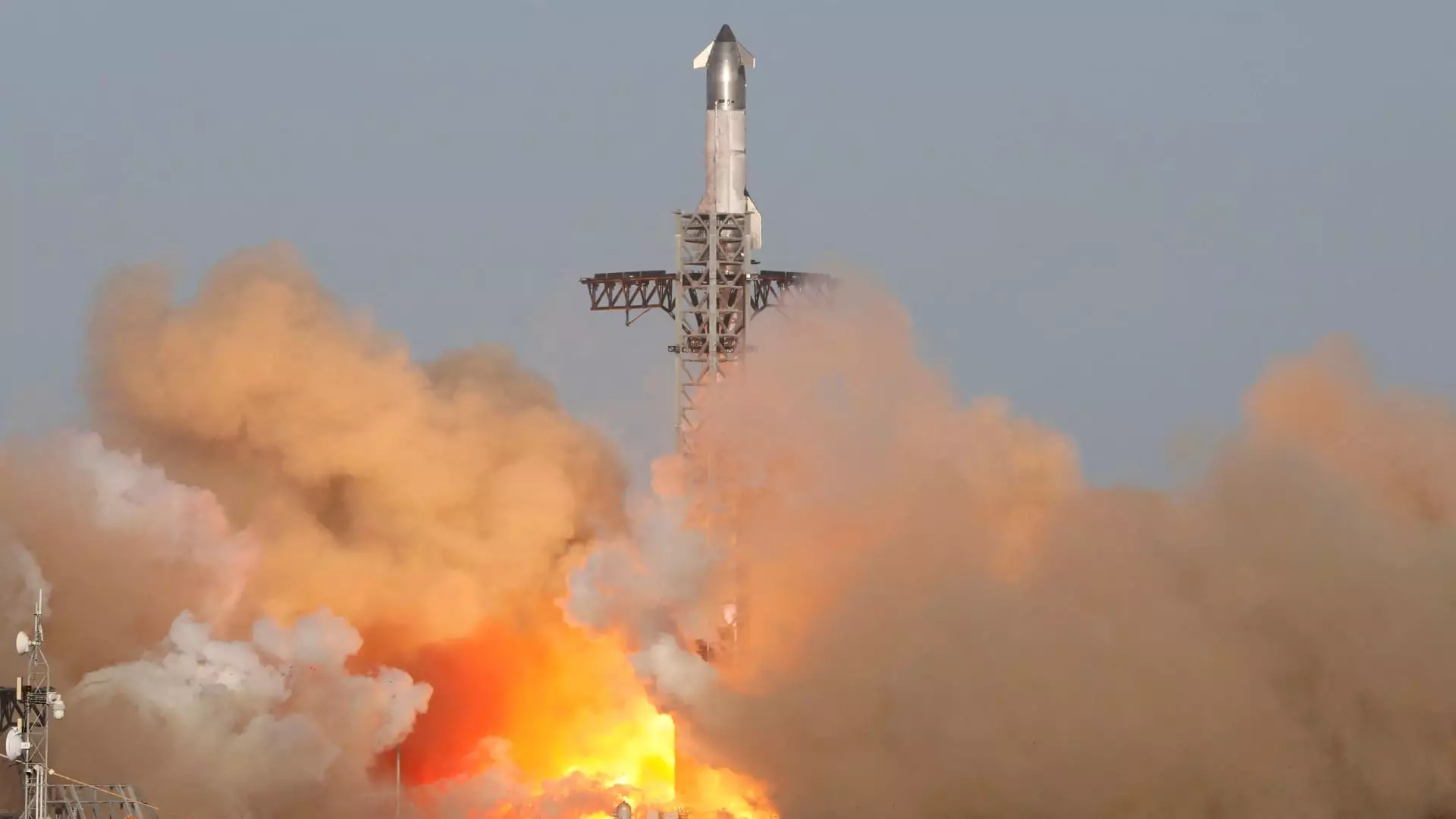It’s no secret that the realm of space exploration is fraught with unexpected challenges, but recent events surrounding SpaceX have highlighted just how precarious this enterprise can be. On a recent Thursday night, a test flight of the SpaceX Starship ended prematurely, leading to a cascade of consequences that affected air traffic in Florida. This incident, as it turns out, is not an isolated one; it joins a troubling trend of mishaps that have not only disrupted space operations but have also affected commercial airline flights. When a company like SpaceX, heralded for its pioneering spirit, finds itself embroiled in controversies that disrupt airport operations and call into question safety regulations, we must take a moment to scrutinize the ramifications of their misadventures.
A Pattern of Disruption
This latest setback marks the second time in 2023 that a SpaceX test flight has led to debris raining down and operational interruptions at major airports, including the bustling Miami International Airport. It begs the question: at what point does a company’s unyielding pursuit of innovation become reckless? Unlike traditional aviation, which operates under rigorously enforced guidelines and regulations, the space industry often finds itself dancing on the razor’s edge of experimentation, leading to increasingly concerning safety implications. A commercial airliner comfortably flying its route should not have to contend with falling debris from a space vehicle. When the FAA intervenes to halt airport operations and enforce stricter oversight due to a SpaceX incident, it creates an atmosphere of unease for travelers and airlines alike.
The Authority Dilemma
Following the recent mishap, the FAA required SpaceX to conduct a “mishap investigation” into its ongoing technical challenges. This raises an essential question about the regulatory oversight in place. Should SpaceX continue to be granted the latitude to test its ambitious projects without stringent accountability measures? The integration of innovative aerospace companies into regulated airspace systems is a delicate balancing act. It becomes even more contentious when influential figures like Elon Musk, who has strong ties to political power, are in charge. His ability to shape policies based on the interests of SpaceX may create perceived conflicts, leading to an erosion of public confidence in the objectivity of regulatory bodies like the FAA.
Innovation vs. Accountability
Elon Musk’s aspirations for SpaceX are nothing short of revolutionary. The Starship, standing at an impressive height of 403 feet, is critical to the company’s vision of interplanetary travel. However, this ambition necessitates a foundational principle of accountability. If the aerospace industry allows technical failures to go unexamined or to happen repeatedly without repercussions, it jeopardizes not just the reputation of an institution but the lives of those it affects. The reality is that each mishap erodes public trust and generates skepticism about the industry’s commitment to safety—a sentiment that could significantly hinder future investments and innovation.
A Divided Landscape
Moreover, the geopolitical dynamics in play exacerbate the situation. Musk’s dual role as a pioneer in the aerospace field and as an advisor to Trump raises eyebrows among lawmakers, particularly those leaning toward a more cautious approach to government deregulation. The stark divide between political philosophies creates tensions that cloud the narrative surrounding SpaceX’s ventures. While some applaud Musk’s audacity and vision, others question the ethics of coupling such grand ambitions with inadequate regulatory measures.
The Path Forward
As we move forward, it is crucial that SpaceX balances its innovative spirit with considerations for the broader implications of its actions. The urgency of scientific advancement should never overshadow safety protocols and effective regulatory oversight. SpaceX must embrace a culture that prioritizes reliability and transparency over mere technological thrill-seeking. The incredibly ambitious goals of space travel should inspire awe rather than anxiety; thus, the onus is on SpaceX to ensure that their captivating journey into the stars does not come at the cost of public safety or regulatory integrity.

